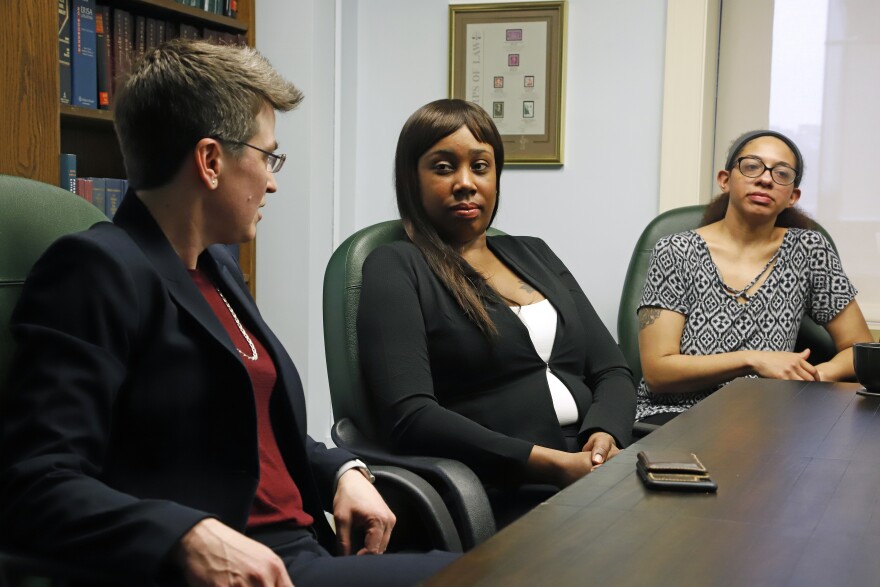UPMC and Allegheny County are being sued after the hospital system allegedly performed urine testing on a woman and her newborn — without the woman’s consent — and then turned over the results to county officials for investigation.
In a complaint filed in Allegheny County's Common Pleas Court on Wednesday, Cherell Harrington of Penn Hills argued these actions were a breach of physician-patient confidentiality, and a violation of her constitutional rights. The complaint says that as a result, she suffered “emotional distress, embarrassment, humiliation and damage to her reputation."
Harrington said that she was admitted to UPMC Magee to deliver her son in November 2017. According to the complaint, hospital staff preformed urinalysis on her and her newborn without her knowledge. Her urine tested as “unconfirmed positive" for THC, the active ingredient in marijuana. Her son's urine was negative.
Though the test results were unconfirmed, the lawsuit says, UPMC reported Harrington to Allegheny County’s Office of Child, Youth and Families. Harrington said a CYF employee photographed her son, obtained the newborn’s medical records, visited her home, twice interviewed her 11-year-old daughter, and contacted the daughter’s school. Harrington was also required to participate in drug counseling and submit to additional drug tests, the complaint says.
Harrington’s attorneys hope that this filing will be the start of a class-action lawsuit. One potential member of that class is Deserae Cook of Duquesne.
In July 2018, the lawsuit alleges, UPMC reported Cook to CYF after she told staff at UPMC Mercy that she had used marijuana before she knew she was pregnant. Though Cook and her daughter’s urine both tested negative for THC, Cook said a CYF employee inspected her home several times, and obtained medical information from her child’s pediatrician.
An Allegheny County spokesperson said the county has a policy of not commenting on legal matters.
In an emailed statement, UPMC said that its clinicians, "make informed decisions regarding screening and drug testing for new mothers and newborns. UPMC follows Pennsylvania’s Child Protective Services Law, which mandates health care professionals to report these findings to the Pennsylvania Office of Children, Youth and Family Services (CYS)."
Allegations that hospitals mishandle such situations are not new.
In 2014, a UPMC maternity patient sued UPMC, alleging that her urine had tested positive for opiates after eating poppy seeds. In legal filings, the hospital system argued that the Pennsylvania Child Protective Services Law “requires reporting to the local child protective services agency of an infant who is born and identified as being affected by illegal substance abuse.” UPMC said this law gives immunity to the hospital when reports are made in good faith.
“If there was no such immunity...then the threat of liability would create a chilling effect on the reporting of suspected instances of abuse,” said the UPMC brief.
The 2014 case was settled outside of court.
The Pennsylvania Supreme Court ruled in December 2018 that a woman who used drugs while pregnant cannot be considered to have abused her newborn, after her baby was born addicted to opiates.
There have also been two federal cases involving drug testing new mothers, both filed over practices used by Jameson Hospital in Lawrence County.
WESA receives funding from UPMC.
This story was updated at 12:10 pm, on 3/11/2020.





